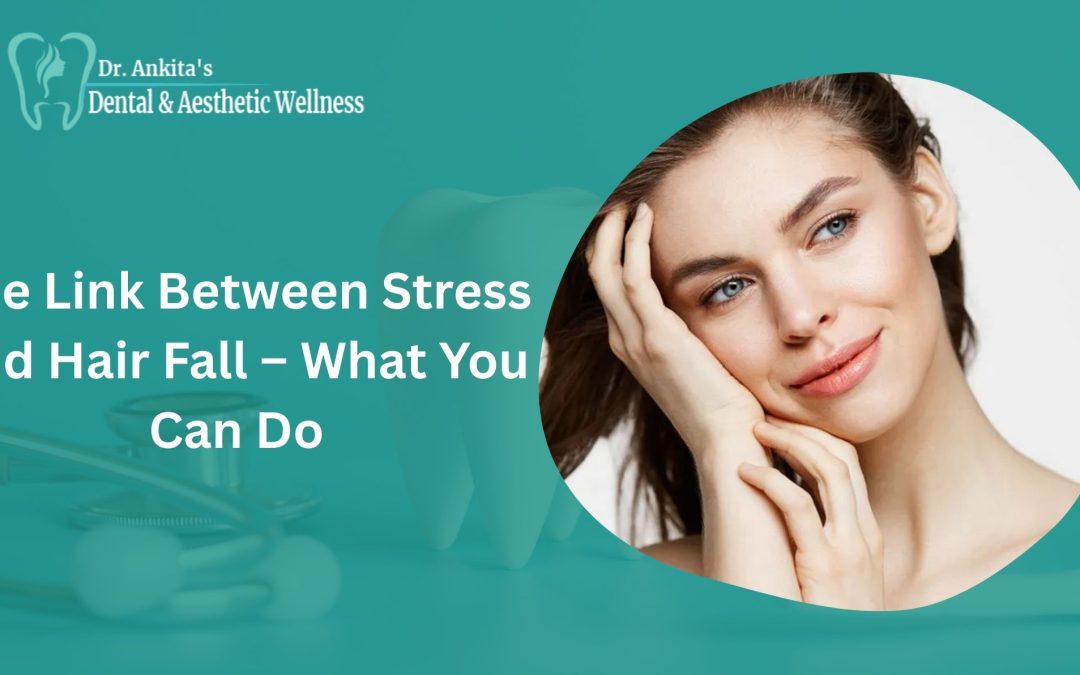Hair fall is one of the most common concerns among men and women today. While factors like genetics, hormonal imbalances, and diet play a significant role, one of the most overlooked causes is stress. Whether it’s work-related pressure, personal struggles, or the demands of modern life, stress doesn’t just affect your mind—it impacts your body, including the health of your hair.
Let’s explore the link between stress and hair fall, and most importantly, what you can do to regain control.
1. How Stress Affects Hair Growth
Our hair grows in cycles, consisting of three main phases:
- Anagen (growth phase)
- Catagen (transition phase)
- Telogen (resting/shedding phase)
Stress disrupts this natural cycle by pushing more hairs into the telogen phase, which leads to increased shedding. This condition is commonly known as telogen effluvium. You may notice hair thinning, especially while brushing or washing your hair.
Additionally, stress can trigger other hair-related conditions:
- Alopecia areata: The immune system attacks hair follicles, causing patchy hair loss.
- Trichotillomania: A stress-induced disorder where individuals pull out their own hair.
This shows that the mind-body connection is very real, and unmanaged stress directly affects your scalp and hair health.
2. Common Signs That Stress Is Causing Your Hair Loss
It’s not always easy to tell if stress is the culprit behind your hair fall. Look out for these signs:
- Sudden increase in hair shedding (handfuls of hair on the pillow or in the shower).
- Thinning across the scalp rather than in patches.
- Hair loss occurring 2–3 months after a particularly stressful event.
- Slower hair regrowth despite maintaining good diet and care.
If these symptoms sound familiar, stress may be a major contributing factor.
3. What You Can Do to Control Stress-Related Hair Fall
The good news is that stress-related hair fall is often temporary and can be reversed with the right approach. Here are some effective steps to manage it:
a) Manage Stress Levels
- Exercise regularly: Activities like yoga, running, or even brisk walking release endorphins that combat stress.
- Practice mindfulness: Meditation, deep breathing, and journaling can calm your mind.
- Sleep well: Aim for 7–8 hours of quality sleep to allow your body to heal and restore.
b) Eat a Balanced Diet
Hair requires nutrients to grow. Include foods rich in:
- Protein (eggs, fish, legumes)
- Iron (spinach, red meat, lentils)
- Omega-3 fatty acids (nuts, seeds, salmon)
- Vitamins A, C, D, E and Biotin
A nutrient-rich diet not only strengthens your hair but also boosts your body’s ability to cope with stress.
c) Adopt Healthy Hair Care Habits
- Avoid excessive use of heat styling tools.
- Use gentle, sulfate-free shampoos.
- Don’t tie your hair too tightly, as it adds stress to hair follicles.
- Massage your scalp with nourishing oils to improve blood circulation.
d) Seek Professional Treatments
If hair loss persists, consulting a professional is essential. Treatments like PRP therapy, mesotherapy, and advanced hair restoration solutions can help stimulate regrowth and restore hair density. A specialist can also recommend customized solutions based on the severity and cause of your hair fall.
Conclusion
Stress and hair fall are more closely linked than most people realize. Chronic stress can disrupt your hair growth cycle, leading to thinning, excessive shedding, or patchy bald spots. The key is to address the root cause—managing stress—while supporting your hair with proper nutrition, care, and professional treatments.
For expert guidance and effective hair restoration solutions, Dental & Aesthetics provide the best services regarding this. With their advanced technology and personalized care, you can restore your confidence and achieve healthier, fuller hair.

